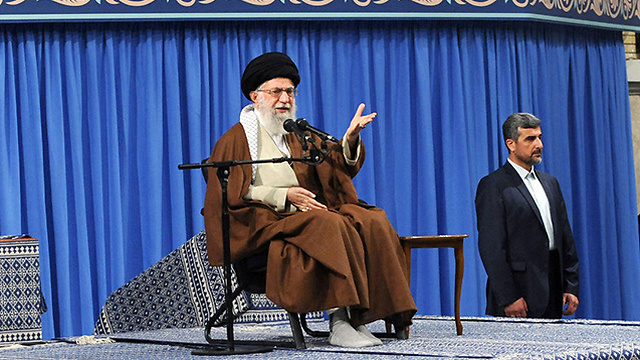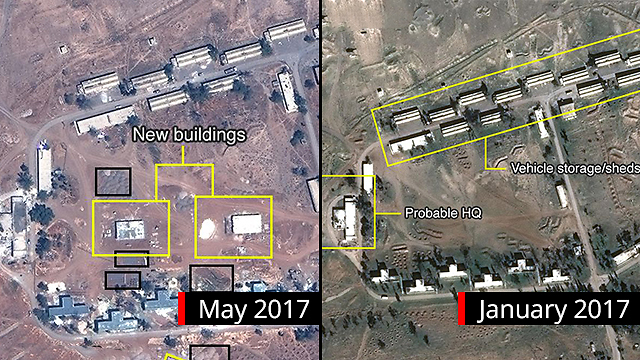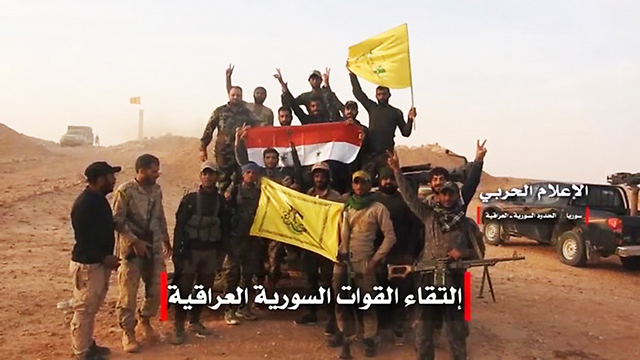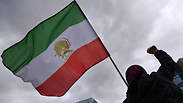
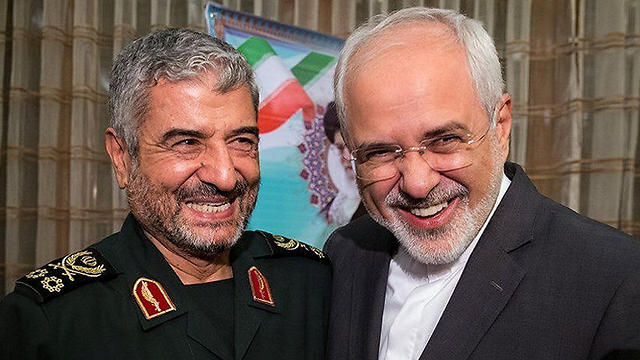
A Persian riddle: When Israelis misread Iran
Analysis: The imminent threat posed by Tehran to the countries of the Middle East shouldn’t be taken lightly, but preoccupation with the Iranian issue has become obsessive and is inspired by sheer ignorance among Israel’s leaders and the people covering the Islamic republic in Israeli media.
Internal power struggles, tensions between a revolutionary Islamic ideology and a practical policy and the gap between the ayatollah regime and a vibrant, dynamic public often create the impression that Iran is a country filled with contradictions that cannot be settled.
Iran is a key state in the Middle East, and its centrality and sphere of influence have kept growing in recent years. The establishment of its regional influence, its support for terror organizations and its nuclear armament have turned the Iranian threat into an issue that concerns not only Israel but its neighbors and the international community as well, mostly in light of the combination between a radical and subversive regime and advanced unconventional abilities.

While the imminent threat posed by Iran to the Middle East’s countries—particularly Israel—should not be taken lightly, the preoccupation with Iran has become obsessive and is inspired by sheer ignorance. Public debate in Israel in this context suffers from a simplistic view not only because of said obsessive preoccupation with the Iranian threat by some of the state’s leaders, but also because of problematic media coverage.
In some cases, the coverage of the Iranian issue is handed over to reporters and commentators on Arab affairs who are fed mainly by the Arab media, and in other cases, to foreign affairs correspondents who are fed mainly by the Western media. The number of Persian-speaking reporters and commentators is close to zero, and in many cases the result is biased—and sometimes completely distorted—coverage.
Headlines warn: Iran deploying its forces in the region
Occasionally, we see huge headlines in the media warnings that Iran is deploying its forces in the region, and even near Israel’s border, in a bid to carry out its intentions to take over the Middle East, to reestablish the Persian Empire and to destroy Israel.
This alarmist approach isn’t limited to commentators affiliated with the Right. Even commentators who usually adopt a critical approach towards the government tend to intensify the Iranian threat all too frequently. They don’t always make a distinction between the revolutionary ideological vision and Iran’s actual policy, which is largely derived from a pragmatic view of vital national interests.
Haaretz military correspondent Amos Harel, for example, warned recently that Iran was using Shiite militias in Iraq to complete the threatening “Shiite Crescent” puzzle being deployed from Tehran to Beirut. These kinds of commentaries refer to the proxy organizations operating on behalf of Iran, like the Shiite militias in Iraq, as tools that are fully committed to Iran’s desires and to promoting its interests.
They ignore these proxies’ local affiliations and the growing difficulties Iran is facing in its efforts to expand its regional influence, such as the Israeli, Russian and Turkish restrictions on Iran’s freedom of action in Syria, Syrian President Bashar Assad's reservations over Iran’s request to establish a permanent military foothold and deepen its economic involvement in his country, or the Iraqi prime minister’s objection to Tehran’s blatant interference in his country’s international political affairs in light of his efforts to rebuild the Iraqi state at the end of the battle against the Islamic State (ISIS).
Some of the commentaries echo pretentious and completely baseless declarations made by Iranian politicians, mostly for propaganda purposes. In an article published in Israel Hayom on October 1, Prof. Efraim Inbar, president of the Jerusalem Institute for Strategic Studies (JISS), unquestioningly adopted the position of an Iranian parliament member who had stated several years ago that Iran “controls four Arab capitals by now: Baghdad, Beirut, Damascus and Sanaa.”
Don’t underestimate Iranian influence
An analysis of Iran’s limits of power, weaknesses and failures in the Middle East is as justified and important as an analysis of its power and achievements, because ignoring its weaknesses could impair the ability to detect opportunities resulting from the limitations of its power to curb its influence.
But precisely in light of the importance to present an alternative thesis to the common thesis found in Israel, we should also beware an underestimation of the Iranian influence, which is partly based on inaccurate assertions.
Dr. Ori Goldberg published a number of articles on Ynet recently in which he argued, among other things, that the Iranians’ only intention is to survive in what they perceive as a complex and threatening reality. Goldberg is right in saying the Iranian presence in Syria and Lebanon can’t be seen as “an attempt at a Shiite takeover of the world” or an effort “to destroy Israel,” because the idea of exporting the revolution characterized the ideological passion in the first days of the Islamic republic, and because the talk about a “Shiazation” of Syria is highly exaggerated.
But Goldberg goes one step too far when he presents the Iranian involvement in Syria and in the region solely as a reflection of a “war of survival” on Iran’s part.
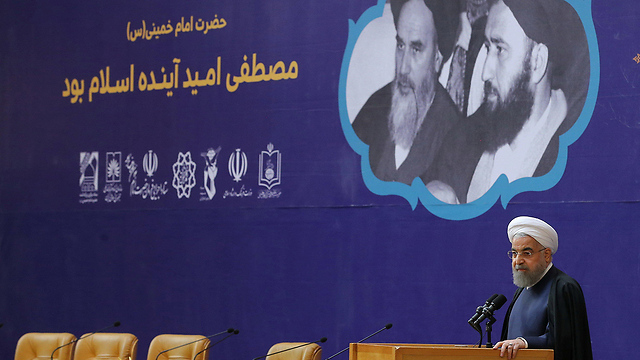
Goldberg’s claim that “the Revolutionary Guards are investing more of their efforts in the entrenchment of their economic enterprises in Syria” is factually incorrect. Iran’s effort to expand its economic influence in Syria is relatively new, stemming from a desire to compensate for the heavy economic investments that the military battle in Syria has claimed from Tehran.
The Revolutionary Guards’ main effort is still directed these days at continuing the fighting alongside the Syrian regime’s forces and the Shiite militias operating on behalf of the Revolutionary Guards, to establish a military foothold and transfer advanced weapons to Hezbollah. His argument that the Revolutionary Guards’ activity isn’t based on a strategy is quite puzzling too.
Senior Iranian officials, including Revolutionary Guards commanders, aren’t hiding Iran’s strategic objectives in the Arab domain. They keep emphasizing their perception that Syria is Iran’s strategic home front, mainly against Israel, and that Iran has a vital interest in preserving and stabilizing the Syrian regime, increasing the leverages of pressure on Israel, pushing away the United States, which is perceived by Iran as a key threat to its national security, and deepening its political, economic and religious influence in the region.
Granted, Iran isn’t pursuing a direct conflict with Israel, at this stage at least. It prefers to continue the strategy of “walking on the edge,” and most of its activity in Syria is carried out today through proxies, led by Hezbollah and foreign Shiite militias.
But while Goldberg puts an emphasis in a different article on Iranian Foreign Minister Mohammad Zarif’s speech at the Munich Security Conference about the need to avoid the use of force and intervene in other countries’ internal affairs. The Revolutionary Guards’ Quds Force, under Qasem Soleimani’s command, keeps intervening in the private affairs of other countries, transferring advanced weapons to Iran’s proxies in Lebanon and in Yemen and increasing aid to Hamas.
Defensive or offensive perception?
We can argue whether the perception behind Iran’s policy is defensive, with an aim at reducing threats to its security, or offensive, with an aim to establish its status as a regional power and as a leading force in the Muslim world. We can’t, however, ignore the fact that Iran has adopted an aggressive foreign policy to achieve its strategic objectives, and that it doesn’t hesitate to use force against those perceived as its enemies.
Goldberg isn’t the only one trying to challenge the common perception regarding Iran. In an article published in Haaretz on January 21, Prof. Uri Bar-Yosef addressed a document signed by Iranian President Hassan Rouhani during a session of the Organization of Islamic Cooperation in Istanbul, which appears to be an Iranian recognition of the establishment of an independent Palestinian state in the 1967 borders. Bar-Yosef addressed this signature, like an earlier analysis by Akiva Eldar on the Al-Monitor news website, as “a revolutionary change in the Iranian position, as Iran has never before expressed support for the Arab Peace Initiative.”
Rouhani’s standpoint on Israel is, indeed, somewhat different from Iranian supreme leader Ali Khamenei’s standpoint, as he believes Iran shouldn’t be “more Catholic than the pope,” or in this case the Palestinians, in its stance towards Israel. Having said that, Bar-Yosef should have at least mentioned that following the Istanbul meeting, the Iranian foreign ministry spokesman issued a clarification stressing that the fact that Iran signed the conference’s statement should in no way be interpreted as an Iranian recognition of Israel.
No revolutionary change in policy towards Israel
We should observe the changes in Iran’s policy towards Israel and even look into ways, although indirect, to find channels of dialogue with Tehran, as Bar-Yosef suggested in another article he published in Haaretz on February 18. But we can’t talk about a “revolutionary change” on Iran’s stance towards Israel as long as the Iranian leader uses every opportunity to reiterate his country’s commitment to the ongoing battle against “the Zionist regime” until “Israel is wiped off the map” and until the establishment of Palestine “from the river to the sea.”
Coverage of the internal situation in Iran is sometimes characterized by a simplistic perception as well. The Islamic republic has been undergoing significant social and political processes of change. The Iranian top echelon is facing serious differences of opinion over the way the Islamic republic is going in, especially between supreme leader Khamenei and President Rouhani. Rouhani acknowledges the need to advance reforms—even gradual ones—which he sees as vital for improving the economic situation and reducing the growing gap between the government institutions and the public, primarily the young generation. The supreme leader, on the other hand, is adamant in his objection to any change that he perceives a threat to the regime’s stability.
This is another issue Dr. Ori Goldberg is right about as he points to Rouhani’s pursuit of change. In a recent article published on Ynet, Goldberg rightly argued that Rouhani was aspiring to create a country “with an ideological elite ruling in an authoritarian way, but which is attentive to its citizens and gives them significant control of their lives.”
But acknowledging the complexity characterizing the Iranian top echelon cannot hide the reality in which the president’s latitude remains limited by the main political centers of power, headed by the supreme leaders and the Revolutionary Guards.
Head-to-head: Rouhani vs. Khamenei
Rouhani has been trying in recent weeks to use the wave of protests that broke out in Iran in late December to advance the perception supporting a need for structural reforms in the economy and a certain expansion of individual freedom. His latitude is very limited, however. The president was recently forced to introduce significant changes to the budget proposal in light of the parliament’s objection to his suggestions to implement far-reaching economic reforms to heal the economy.
The limitations on the president’s latitude are evident in the area of individual freedom as well, with the Revolutionary Guards aggravating the policy of oppression against anyone suspected of collaborating with the West, including several environmental activists who were arrested last month for serious espionage.
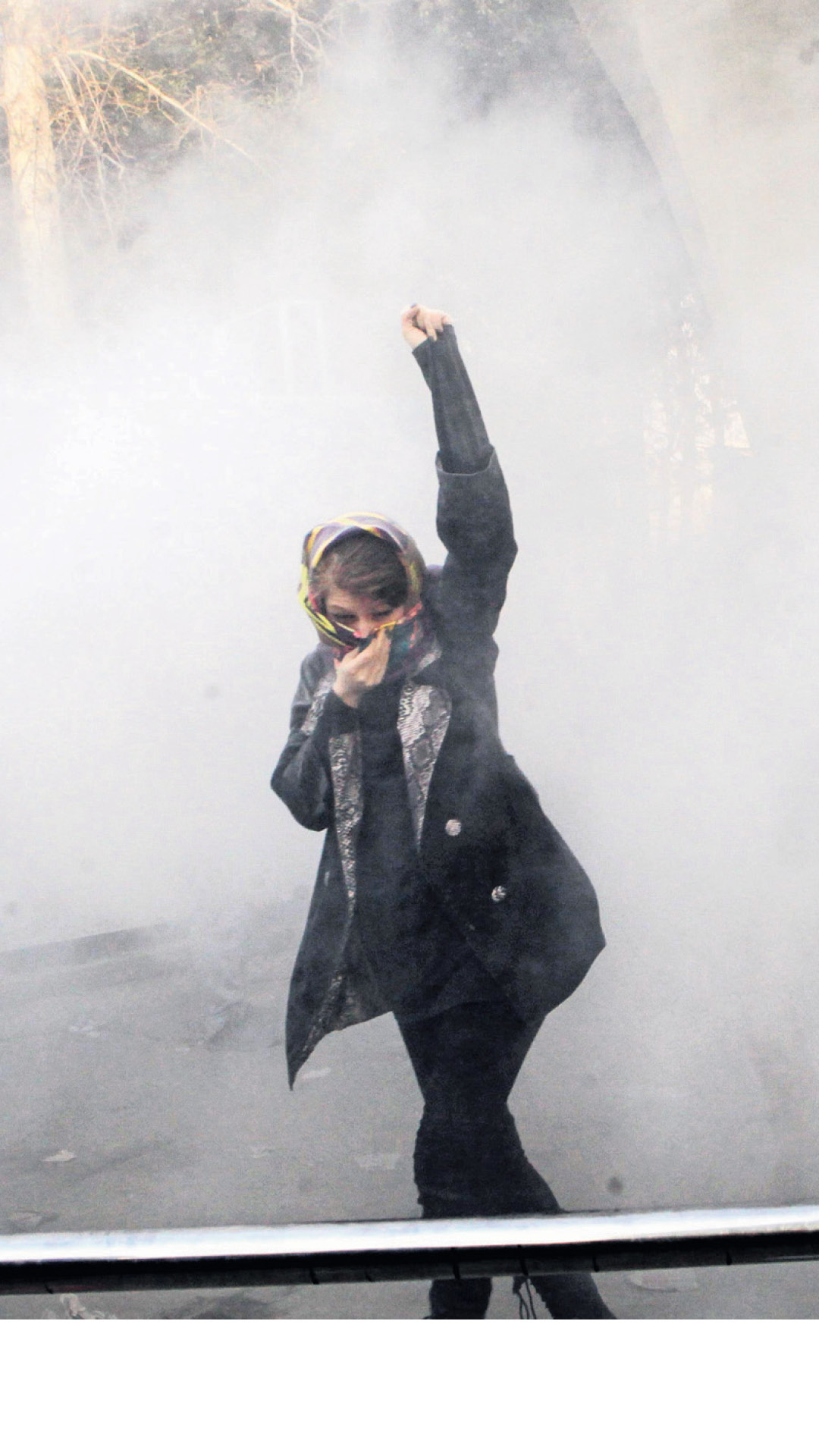
If Rouhani ever succeeds Khamenei as Iran’s supreme leader, he may succeed in fulfilling his goals. It’s too early, however, to assess his chances of winning the future inheritance battle, especially in light of the expected opposition to his appointment by members of religious establishment and the Revolutionary Guards, who will likely favor other conservative candidates over him, like the head of the judicial system, Sadeq Larijani, or religious cleric Ebrahim Raisi, who ran against Rouhani in the last presidential election.
Commentaries based on heart’s desires aren’t limited either to one side of the political map. On the backdrop of the wave of protests in Iran, some commentators claimed that the Iranian regime was on the brink of collapse. These assessments, which we have been hearing almost since the first days of the Islamic Revolution, are occasionally published when a protest breaks out in Iran above the surface.
Some of the commentators, like Prof. Mordechai Kedar, have even raised different suggestions for advancing to regime’s collapse. Kedar, who has been advocating the encouragement of separatist trends among the ethnic-linguistic minorities in Iran for years, keeps ignoring the fact that unlike most Arab countries, Iran isn’t a new “artificial” nation state whose borders were created by Western colonialism, and that many of the ethnic minorities in the country see themselves first and foremost as Iranians, even if they sometimes raise demands to remove discriminations against them.
Iran is a complex country with many contradictions. But precisely for that reason, it requires a sober and responsible analysis based on established assertions rather than on dogmatic thought subjecting facts and interpretations to political or ideological word views. Such an analysis cannot be based on an alarmist approach that ignores Iran’s weaknesses, nor on heart’s desires concerning its intentions or strengths.
Iran is a complex country with many contradictions. But precisely for that reason, it requires a sober and responsible analysis based on established assertions rather than on dogmatic thought subjecting facts and interpretations to political or ideological word views. Such an analysis cannot be based on an alarmist approach that ignores Iran’s weaknesses, nor on heart’s desires concerning its intentions or strengths.
Dr. Raz Zimmt is a research fellow at the Institute for National Security Studies (INSS), at the Alliance Center for Iranian Studies at Tel Aviv University and at the Forum for Regional Thinking, specializing in Iran.














